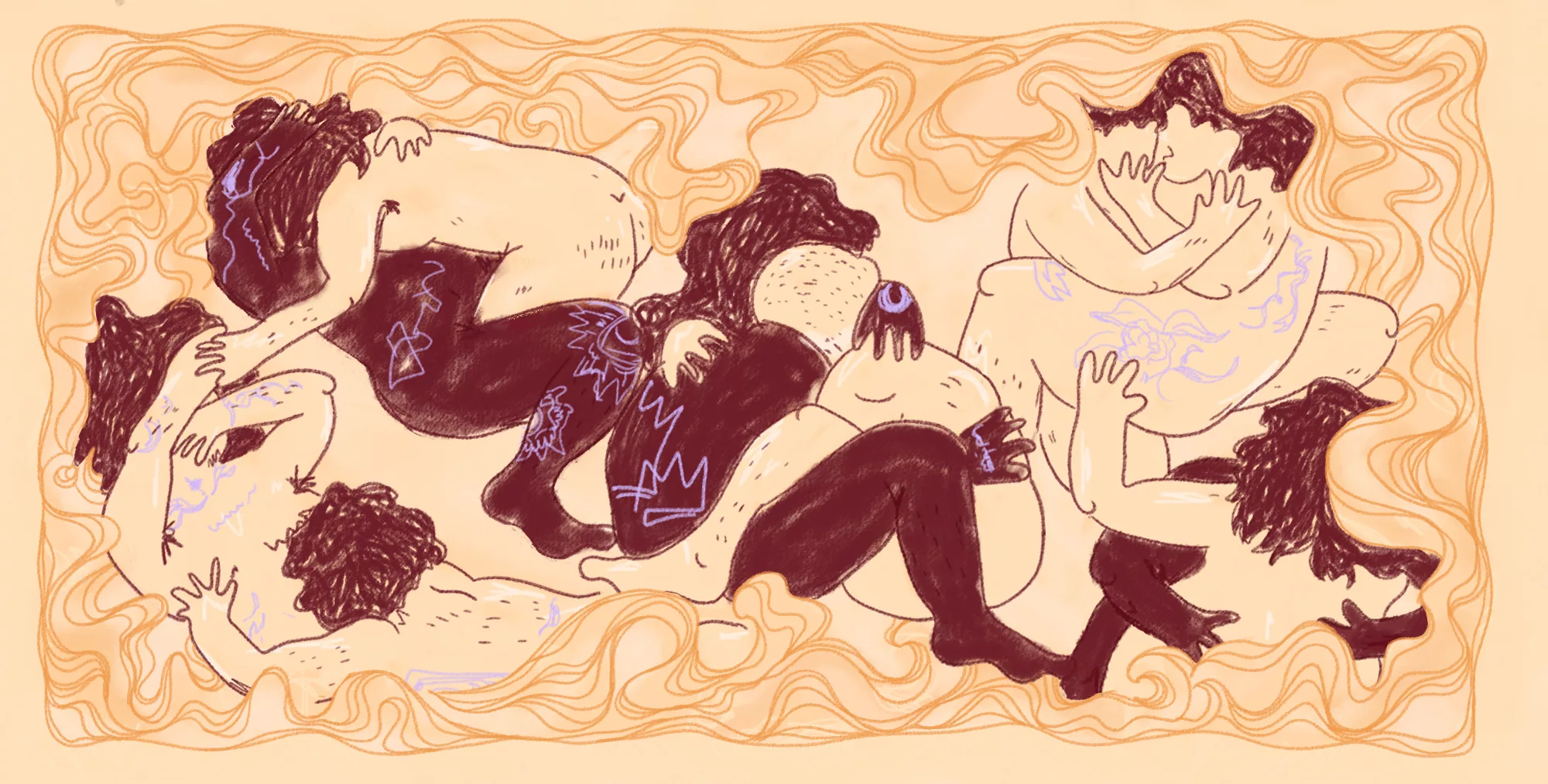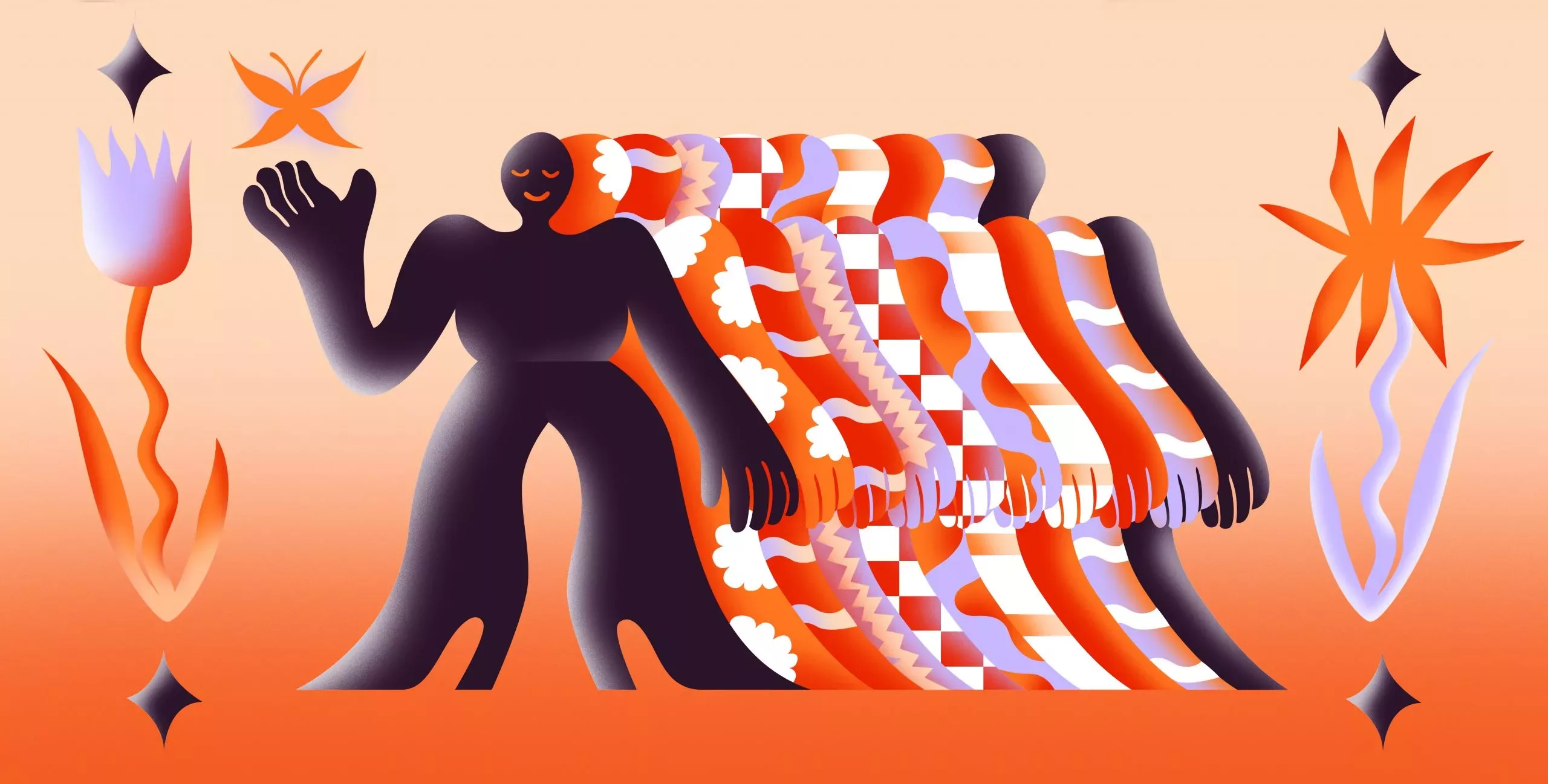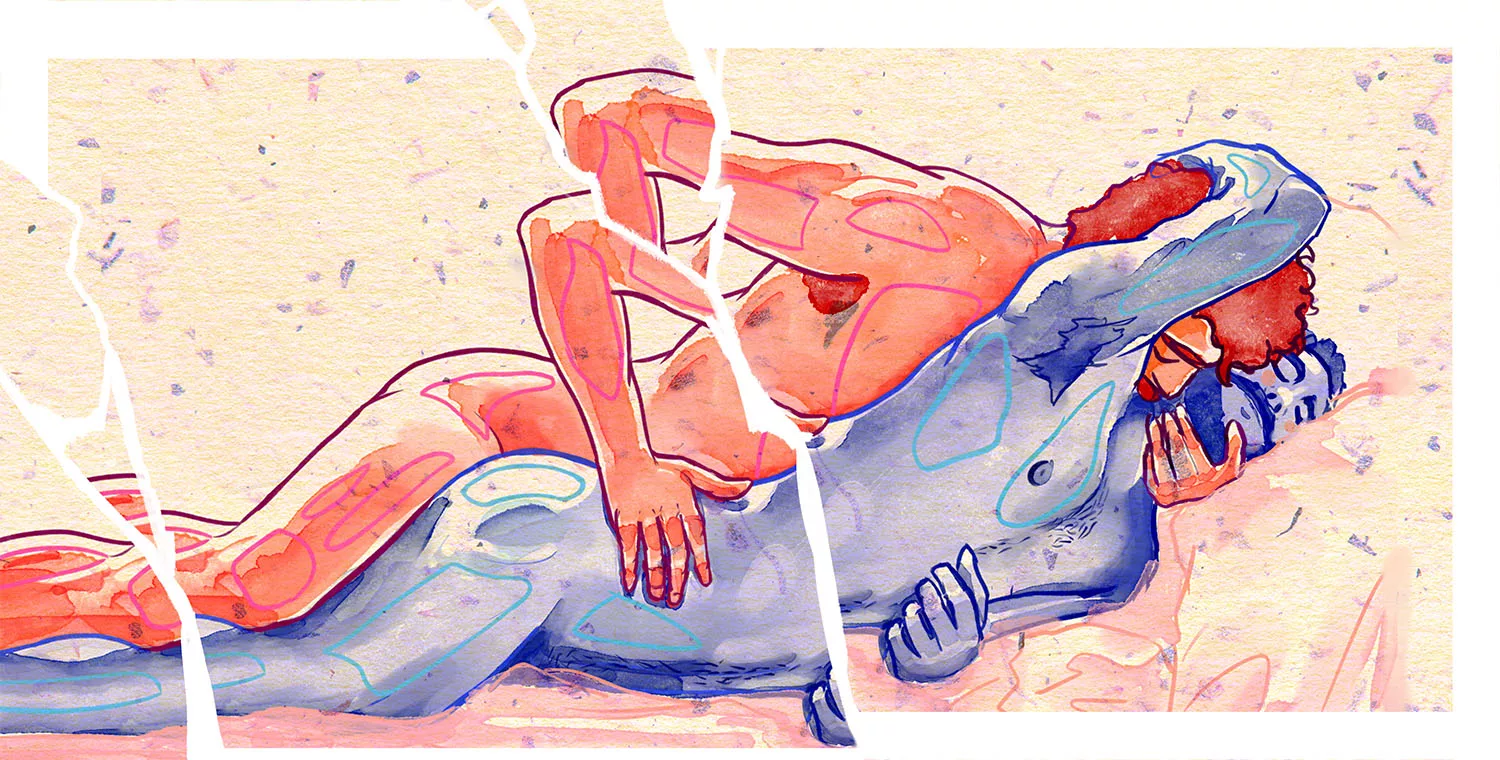Your cart is currently empty!
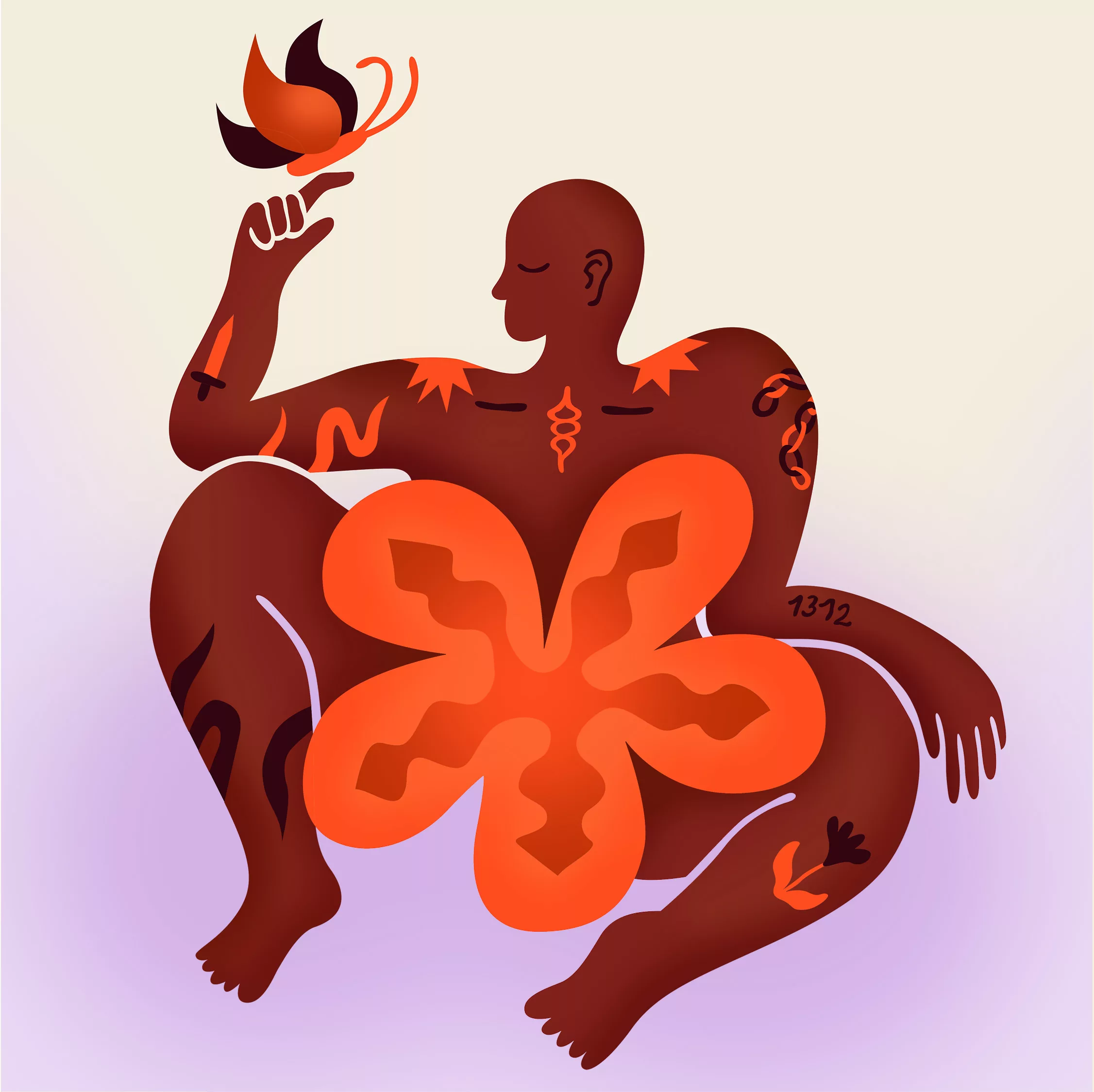
Ending the “First Time” Myth Once and for All
I couldn’t have been much older than 15. We had all gathered around our friend. “Soooo, did you do it?” Blushing, her chest swelling with pride, she answered, “Yep, I did it.” We didn’t need to be specific; it was all implied.
The “first time”.
I romanticized it. It would surely be sweet and beautiful, but it would hurt, too. That’s what everyone said. I remember wondering when it would happen for me. If it would be like in romance movies, if it was going to be tender, and who would it be with. For someone like me— someone who didn’t really attract boys and who, most of all, thought they were straight at the time.
The very first time
I then met a girl. This girl made me understand who I was, or rather what I was: a lesbian. We talked a lot, we professed our love for each other, she became my girlfriend, and the next thing we knew, we were at my house. And once we were behind closed doors, we got much more intimate.
It was sweet, beautiful, and romantic.
But I didn’t experience any pain, so it didn’t really fit the narrative. It felt as though it wasn’t really the first time.
It wasn’t until much later that I realized that it was my first time. It was a first time. Yet, I couldn’t get rid of this strange feeling: it bore no resemblance to the romanticized version I had expected. It didn’t fit any of the stories I had seen on TV and nothing to make me lose my hymen. No pain. No blood. There was certainly no penetration with a penis.
It was only a few years later that I realized, “Hey, wait a minute. I’m not actually a virgin!” Because I, too, had internalized the idea that there HAD to be a penis in the equation. That, otherwise, it was just a childish act of playing doctor—nothing real or serious. I used to say that I was a penis virgin—a full-on virgin, even. We could talk about internalized homophobia, but that’s not the point.
So, what does it mean to be a virgin, then?
The concept of virginity loss served above all to verify that women were “pure” before marriage. We have already addressed this in this other article on virginity: the expression “losing one’s virginity” speaks to a patriarchal reality. A social, cultural, and very religious concept, virginity is often associated with notions of honour and purity. It can therefore be used to control women’s bodies and the freedom to do with them as they wish.
Moreover, women’s virginity can be a fantasy for many men, as it is often seen as tied to male dominance, as if a virgin woman becomes a man’s property once he “sullies” her
The foreplay-penetration-orgasm holy trinity
Whether it’s in movies, TV series, or mainstream porn, the discourse conveyed in the media and often even endorsed by our friends is the same. The first-time norm involves heterosexual penetration, but with “foreplay”! The latter is considered to be a warm-up before the real thing: the appetizer preceding the main course. Blowjobs, cunnilingus, caresses, mutual masturbation, and other erotic activities are only seen as a way to increase arousal in preparation for penetration, which must be solely responsible for inducing the mandatory orgasm: a script that transforms a moment of exchange and connection into a quest for performance.
Lacks originality, doesn’t it?
The days when we only fucked to reproduce are long gone; we can have fun now!
In addition to being boring as fuck, promoting penetration as the only valid act for the first time is problematic in heterosexual relationships because it puts pressure on both partners. It also erases all other sexual practices, not only gay, lesbian, and queer sex, but also foreplay overall because it portrays it as a mere incomplete preamble to something else. We then end up with people who, like me, realize two years after the act that they are no longer “virgins.”
There’s a wide range of sexual practices, ways of having sex with another person (or several people!), and of defining sex. So, it seems absurd and obsolete to think of first-time sex only in terms of a phallus tearing away feminine purity.
Multiple first times
We hear more and more people talk about the start of their sex lives—their sexual débuts—with their first masturbation in mind: as a first encounter with sexual pleasure and its effect on the mind and body.
Other people define their first time as a particularly significant or meaningful event that made them discover a new experience, sometimes several years after having “started their sex lives.” Others talk of multiple first times and define them according to their lived experiences.
We’ve already covered some of this in this testimonial article, but it’s ultimately up to everyone to define their own first time. Even if it means never defining anything as such.
-
Andro, A. & Bajos, N. (2008). La sexualité sans pénétration : une réalité oubliée du répertoire sexuel. Dans : Nathalie Bajos éd., Enquête sur la sexualité en France: Pratiques, genre et santé (pp. 297-314). Paris: La Découverte.
Blank, H. (2007). Virgin : The untouched history. New York : Bloomsbury.
Cinthio, H. (2015). « “You go home and tell that to my dad!” Conflicting claims and understandings on hymen and virginity », Sexuality & Culture, no 19, p. 172-189.
Dunn, J. C. et Vik, T. A. (2014). « Virginity for sale: A foucauldian moment in the history of sexuality », Sexuality & Culture, no 18(3), p. 487-504.
Dylan, N. (2009). Why I’m selling my virginity. The Daily Beast. http://www.thedailybeast.com/blogs-and-stories/2009-01-23/why-im-selling-my-virginity/.
Frasier, L. D. et Makoroff, K. L. (2006). « Medical evidence and expert testimony in child sexual abuse », Juvenile and Family Court Journal, no 57(1), p. 41-50.
Hatzenbuehler, M. L. (2009). « How does sexual minority stigma “get under the skin”? A psychological mediation framework », Psychological bulletin, no 135(5), p. 707.
Hegazy, A. A. et Al-Rukban, M. O. (2012). « Hymen : facts and conceptions », The Health, no 3(4), p. 109-115.
Herek, G. M. (2004). « Beyond “homophobia”: Thinking about sexual prejudice and stigma in the twenty-first century », Sexuality Research & Social Policy, no 1(2), p. 6-24.
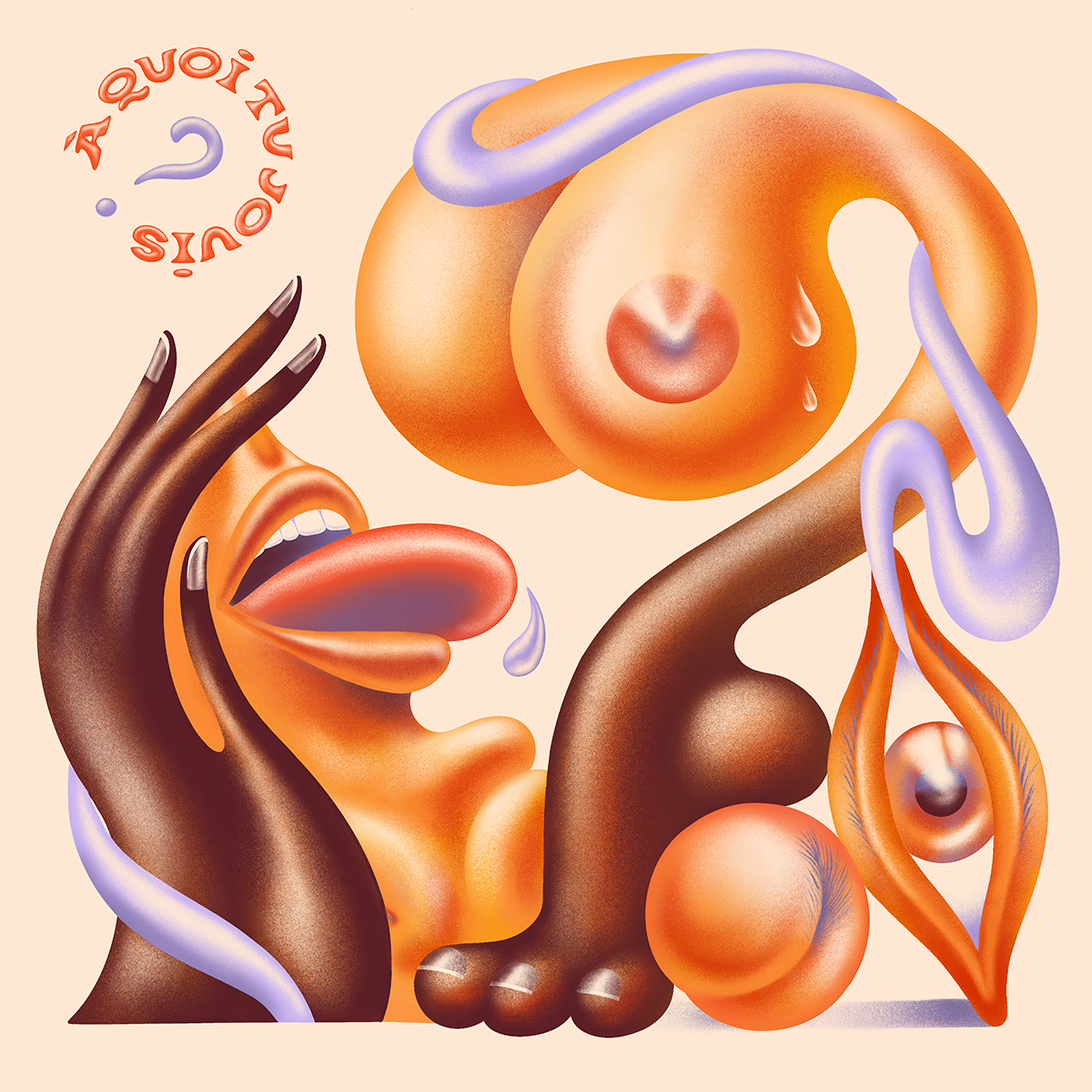
If reading this article has piqued your curiosity, there’s an episode of our podcast, À quoi tu jouis?, about lesbian culture and sexuality (available in French only).



